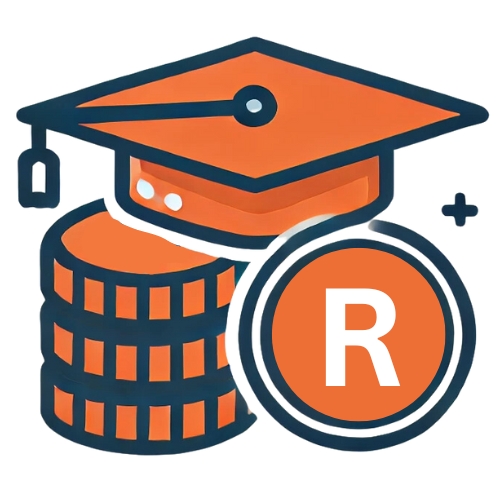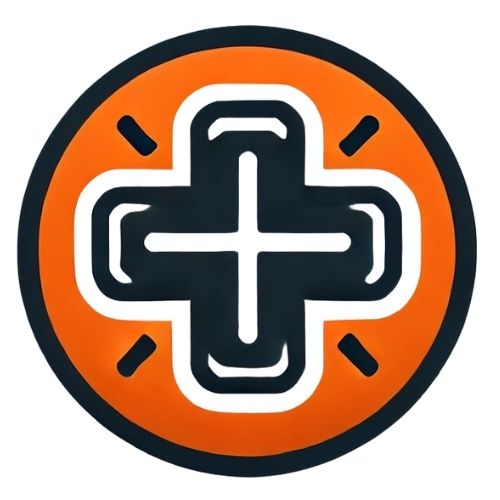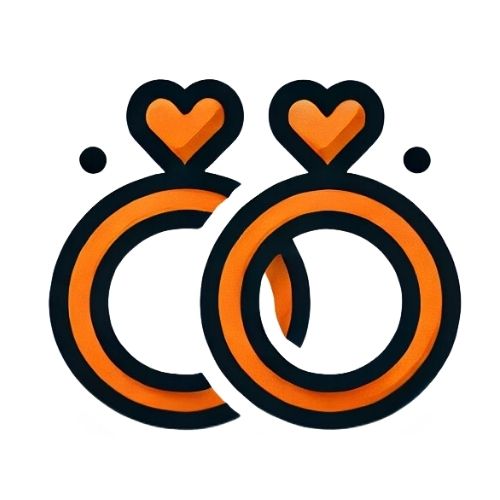
A personal loan provides a flexible financing option that can be utilised for various needs, such as covering unforeseen expenses, making significant purchases, or consolidating existing debts. Repayment is structured through fixed monthly instalments, which include both the principal amount and interest. For example, instead of gradually saving money over an extended period to address an urgent home repair, you could opt to secure a personal loan to handle the repair immediately, then repay the borrowed amount through consistent, manageable payments.
Key Takeaways
- Versatile Usage of Personal Loans: Personal loans offer flexible financing options for various needs, such as consolidating debt, covering emergencies, funding education, or managing large expenses like home improvements or weddings.
- Advantages and Risks: While personal loans provide predictable repayments and quick access to funds, they may involve higher interest rates (especially for unsecured loans) and fees, and they carry the risk of over-indebtedness if not managed responsibly.
- Comparing Lenders in South Africa: Borrowers should evaluate banks, credit unions, and online lenders based on factors like interest rates, fees, loan terms, and service quality to select the option that best fits their financial needs.
How Personal Loans Work
Personal loans are offered by various institutions, including banks, credit unions, and online lenders. Many lenders provide the option to prequalify online, which allows prospective borrowers to view potential interest rates without impacting their credit scores. This feature enables individuals to compare loan offers more effectively and select the most suitable option for their financial requirements.
Most personal loans are unsecured, meaning they do not require borrowers to pledge any collateral. Key terms associated with personal loans include the following:
- Repayment Period: This refers to the duration allowed to repay the loan, which typically ranges from one to five years. In some cases, this is expressed in months, such as 24 months instead of two years.
- Interest Rate: This is the percentage charged by the lender on the principal amount to provide the loan. According to recent data from the Federal Reserve, the average interest rate for a 24-month personal loan stands at 8.73%.
- Monthly Instalment: This represents the total amount payable each month, including the principal, interest, and any applicable fees, to ensure the loan remains in good standing.
When applying for a personal loan, the lender will evaluate your credit history and scores, as well as assess your cash flow, to determine your ability to manage the repayment. If your application meets the lender’s criteria, the loan may be approved, and the funds could be disbursed to you within a timeframe ranging from minutes to several days, depending on the lender’s processing speed.
When considering the versatility of personal loans, it’s equally important to understand the speed at which you can access them for urgent needs. Explore How Quickly Can You Get Personal Loan? and take control of your financial planning.
Types of Personal Loans
Personal loans are typically classified as either secured or unsecured. A secured personal loan requires the borrower to provide collateral as a condition for obtaining the funds. Collateral can include financial assets such as a savings account or certificate of deposit (CD), or tangible property like a vehicle or boat. In the event of default, the lender is entitled to seize the collateral to recover the outstanding debt. It is recommended to compare interest rates from reputable lenders when considering secured loans.
Unsecured personal loans, on the other hand, do not require any collateral. These loans are available through banks, credit unions, and online lenders to borrowers who meet the eligibility criteria. Because unsecured loans lack collateral, financial institutions often regard them as higher-risk. As a result, borrowers may face higher interest rates compared to secured loan options.

Common Features of Personal Loans
Personal loans typically share similar characteristics, regardless of the financial institution providing them.
- Fixed Interest Rates: Lenders offering personal loans usually apply fixed interest rates, which are determined primarily by your credit profile and your debt-to-income ratio. These fixed rates mean the annual percentage rate (APR) on the loan remains constant for the entire repayment period.
- Consistent Monthly Repayments: With fixed interest rates, the monthly repayment amount stays the same throughout the loan term. This predictability makes personal loans an attractive option for those looking to consolidate existing debts into a single, manageable payment.
- Extended Repayment Periods: Most lenders provide flexible repayment terms ranging from one to seven years. These extended terms allow borrowers to estimate their monthly repayments and total interest costs over the life of the loan.
- Origination Fees: Some personal loans include an origination fee, which can be as high as 12 percent of the loan amount. This fee is subtracted from the total funds when the loan is disbursed, meaning the amount received may be less than the total borrowed.
Don’t Use a Personal Loan for Hollywoodbets and Betway, there are certain things you should avoid funding with a personal loan, including high-risk ventures like gambling.
About Arcadia Finance
Simplify your loan acquisition with Arcadia Finance. Benefit from no application fees and a selection of 19 credible lenders compliant with the National Credit Regulator standards of South Africa. Experience an efficient process with reliable options that cater to your financial needs.
How Personal Loan Applications Work
A personal loan allows you to borrow a specific amount of money, which must be repaid in regular monthly instalments over an agreed-upon period. These repayments include interest, which varies depending on the loan amount, the interest rate, and the repayment period you choose. The terms of repayment are influenced by how much you are borrowing and how long you need to comfortably pay it back.
Each personal loan application is evaluated individually. The approval process and the conditions of the loan are determined by factors such as:
- Credit Score: This is used to assess your financial reliability by examining your history of debt management and repayments. It indicates how much debt you currently have and whether you’ve been responsible with credit in the past.
- Income: Your earnings are reviewed to establish whether you have sufficient financial capacity to take on and repay the loan. This includes ensuring that after making loan repayments, you still have enough income to cover other essential expenses.

Main Reasons South Africans Apply for Personal Loans

Education Costs
Education remains a key priority for South Africans, as many parents and students aim to secure better opportunities by advancing their qualifications. Tertiary education, however, comes with significant costs, including tuition fees, accommodation, and learning materials such as textbooks. As these expenses continue to rise, personal loans are often used to make higher education more accessible.

Home Improvements
Renovations, repairs, or upgrades often come with high costs, but they are essential for keeping a property in good condition or increasing its market value.
In urban areas, where housing markets remain competitive, homeowners frequently invest in upgrades to improve both functionality and aesthetic appeal.

Emergency Expenses
Unforeseen events, such as urgent medical care, vehicle breakdowns, or sudden home repairs, can disrupt household budgets. These unexpected costs often require immediate attention, leaving many South Africans turning to personal loans when savings or insurance payouts are not sufficient. Personal loans serve as a financial safety net during challenging times, helping individuals manage these urgent expenses.

Medical Expenses
Medical care in South Africa can be costly, especially for those without comprehensive medical aid plans. Even those with coverage often encounter unexpected expenses, such as co-payments or treatments that fall outside their insurance benefits. Personal loans are a practical option for addressing these financial gaps, enabling individuals to afford the care they need without undue stress.

Wedding Costs
Weddings are major milestones in life that often require considerable financial planning. In South Africa, many individuals turn to personal loans to manage these expenses. The overall cost of hosting a wedding has steadily increased, with key contributors including venue hire, catering services, wedding attire, and professional photography. Even modest, small-scale weddings can come with substantial costs, while grander celebrations can easily exceed six-figure amounts.
For many couples, a wedding represents a unique opportunity to create lasting memories. Personal loans provide a practical solution for covering the associated expenses, enabling couples to concentrate on enjoying their special day without financial stress.
Advantages and Disadvantages of Personal Loans
Understanding the benefits and drawbacks of personal loans is essential for making informed financial decisions. Below is a balanced overview to help you weigh the pros and cons.
Advantages
- Predictable Repayments: With fixed interest rates, personal loans come with consistent monthly repayments. This predictability makes it easier to budget and manage finances.
- No Collateral Required: Most personal loans are unsecured, meaning you do not need to pledge assets like your home or car. This reduces the risk of losing valuable property if repayments are not met.
- Quick Access to Funds: Personal loans are often disbursed within a short period, making them a convenient option for urgent expenses such as medical emergencies or home repairs.
- Flexible Usage: Borrowers can use personal loans for a variety of purposes, from consolidating debt to funding education or covering unexpected expenses.
Disadvantages
- Higher Interest Rates: Unsecured loans carry higher interest rates compared to secured loans, reflecting the increased risk to lenders.
- Origination Fees: Many lenders charge origination fees that can be as high as 12 percent of the loan amount. This fee reduces the total amount received, which can be an unwelcome surprise for borrowers.
- Risk of Over-Indebtedness: Borrowing more than you can afford to repay may lead to financial strain and difficulty managing other essential expenses.
- Credit Impact: Missing repayments or defaulting on a personal loan can negatively affect your credit score, making it harder to access credit in the future.

Comparing Personal Loans in South Africa
Selecting the right personal loan requires careful comparison of offerings from various lenders. Here’s how to evaluate your options effectively:
| Lender Type | Examples | Advantages | Disadvantages |
|---|---|---|---|
| Banks | Standard Bank, ABSA, FNB, Nedbank | – Competitive interest rates for strong credit profiles. – Flexible repayment terms (12-72 months). – Access to financial advisory services. | – Longer application processes due to stricter criteria. – Higher fees for those with poor credit. |
| Credit Unions | Old Mutual Finance, cooperative financial institutions | – Lower interest rates than banks. – Personalised service and loan flexibility. – Community-focused options tailored to specific groups. | – Membership requirements may limit access. – Limited nationwide availability. |
| Online Lenders | Wonga, RCS, Capitec Bank | – Quick and easy online applications. – Fast approval and fund disbursement. – Transparent terms for comparison. | – Higher interest rates for lower credit scores. – Limited customer interaction or detailed guidance. |
Conclusion
Personal loans are a versatile financial tool that can help South Africans manage a wide range of needs, from addressing emergency expenses to funding major life events or consolidating debt. While they offer benefits such as predictable repayments and quick access to funds, borrowers should carefully evaluate their financial situation, consider the costs involved, and compare options from different lenders. By understanding the mechanics of personal loans and using them responsibly, individuals can make informed decisions that align with their long-term financial goals.
Frequently Asked Questions
Secured loans require collateral, such as a car or savings account, which the lender can seize if you default. Unsecured loans, on the other hand, do not require collateral but often come with higher interest rates due to the increased risk to the lender.
Eligibility depends on factors such as your credit score, income, and debt-to-income ratio. Lenders will assess your financial history and current situation to determine your ability to repay the loan.
Yes, personal loans are often used to consolidate multiple debts into a single payment. This can simplify your finances and may reduce the overall interest you pay, provided the loan offers a lower rate than your existing debts.
Many lenders charge origination fees, which can range up to 12 per cent of the loan amount. Additional fees may include late payment penalties or early settlement charges. It’s essential to review the lender’s fee structure before applying.
Approval times vary depending on the lender. Online lenders often approve and disburse funds within hours or days, while traditional banks and credit unions may take several days to a week, depending on their processing times.




